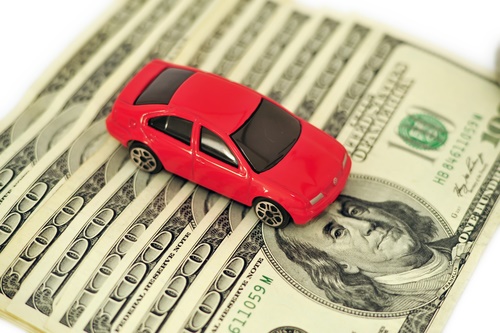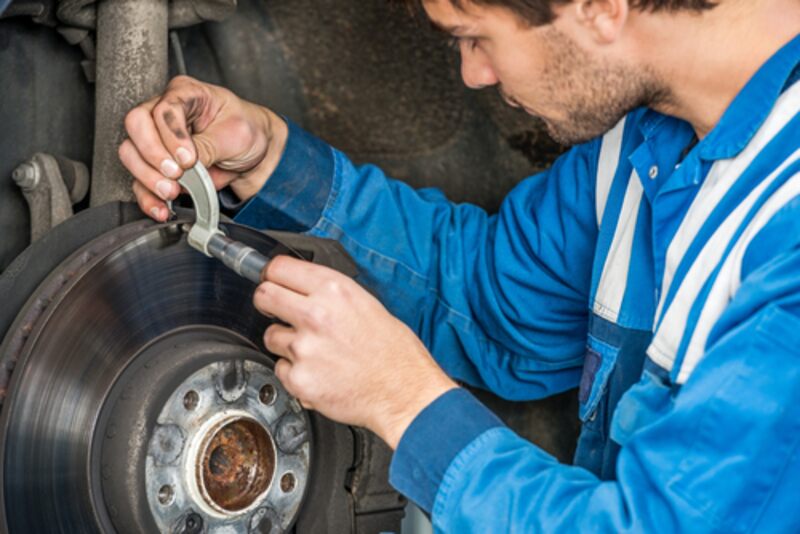Why not capitalize on gas savings? There are some big misconceptions about cars these days. One of the most prevalent is that, since newer cars are made to need less maintenance than older models, they don’t need regular maintenance at all. This could not be further from the truth!
Today’s cars certainly require less upkeep than their predecessors, but regular maintenance is still an essential part of keeping your car in good working order. Failing to keep up with the regular maintenance on your car can actually lead to some pretty big problems, including poor fuel efficiency.

Regular Maintenance Task #1 – Tune-Ups
Engines are finely-tuned pieces of equipment; when they’re improperly tuned, it can result in poor fuel efficiency. Refer to your Owner’s Manual to find out how often your car’s engine needs to be tuned up. Sensors and other worn parts may be replaced during a tune-up.
One of the most important sensors on your engine is an oxygen sensor. It helps your car burn fuel more efficiently by measuring the amount of fuel left in the exhaust, then providing information to the computer about whether the mixture is too rich (too much gas), or too lean (not enough gas). Oxygen sensors should typically be replaced every 24,000 miles, or 24 months, whichever comes first. A defective oxygen sensor can reduce gas mileage by as much as 40%.
Regular Maintenance Task #2 – Check Tire Pressure
This maintenance task is so easy that it should be performed every time you get gas. Air pressure gauges are available at most auto parts stores and can range from a few dollars, to upwards of $10 for a digital pressure gauge. Find the optimal PSI (pounds per square inch) for your tires by checking for a sticker in the driver’s side door jamb of your vehicle. Proper tire pressure may also be found on your tire manufacturer’s website, or you can contact a local mechanic for assistance.
Maintaining proper tire pressure can save a lot of gas; for every single pound per square inch your tires are underinflated, you are losing nearly half a percent off your fuel efficiency. Being 4 PSI under means your gas mileage is decreased by nearly 2%.
Regular Maintenance Task #3 – Check and Replace Air Filter
Air filters should be replaced about every 12,000 miles, or 12 months, whichever comes sooner. This is an easy do-it-yourself maintenance task, but you can also leave it to a mechanic if you take your car in for yearly maintenance. If you decide to take care of this task yourself, you can consult your Owner’s Manual for instructions on how to replace your air filter.
Regular Maintenance Task #4 – Keep Your Car Cleaned Out
This maintenance task doesn’t require you to do anything except make sure you’re not carrying a lot of unneeded weight in your vehicle. Don’t let newspapers, magazines, cans, and fast food wrappers build up in your car; these items add extra weight to your car and decrease its fuel efficiency. It’s especially important to mind what’s in your trunk; heavy bags from a trip, unnecessary tools, or other items should be removed as promptly as possible.
Better Gas Mileage Means More Money in Your Pocket
Keeping up with the regular maintenance required by your vehicle means you’ll be getting the best gas mileage, putting more money in your pocket. However, these simple maintenance tasks are often overlooked by drivers. If you’re not sure how to best maintain your car, it’s a good idea to consult us your local mechanic. It’s the best thing for your car, and your wallet.
Frequently Asked Questions
Why is regular car maintenance important for gas savings?
Regular car maintenance is crucial for maximizing gas savings and ensuring your vehicle’s optimal performance. Neglecting maintenance tasks can lead to decreased fuel efficiency, costing you more money at the pump. By keeping up with tune-ups, checking tire pressure, replacing air filters, and keeping your car clean, you can improve gas mileage and save money on fuel in the long run.
What role do tune-ups play in gas savings?
Tune-ups play a significant role in gas savings by ensuring your engine operates efficiently. During a tune-up, worn parts are replaced, including the oxygen sensor, which monitors fuel efficiency. A properly tuned engine burns fuel more efficiently, leading to better gas mileage. Neglecting tune-ups can result in poor fuel efficiency and increased fuel consumption.
How does tire pressure affect gas savings?
Proper tire pressure is essential for maximizing gas savings. Underinflated tires can significantly decrease fuel efficiency, costing you more money at the pump. By regularly checking and maintaining proper tire pressure, you can improve gas mileage and save money on fuel. For every pound per square inch your tires are underinflated, you could be losing valuable fuel efficiency.
Why is it important to check and replace air filters for gas savings?
Checking and replacing air filters is crucial for gas savings because clean air filters promote efficient engine performance. A clogged air filter restricts airflow to the engine, causing it to work harder and consume more fuel. By replacing air filters regularly, you can improve fuel efficiency and save money on gas over time.
How does keeping your car cleaned out contribute to gas savings?
Keeping your car cleaned out is essential for maximizing gas savings by reducing unnecessary weight. Excess weight in your vehicle, such as newspapers, magazines, and other items, can decrease fuel efficiency. By removing unnecessary items and keeping your car clean, you can improve gas mileage and save money on fuel.
What are the benefits of maintaining gas savings through regular car maintenance?
Maintaining gas savings through regular car maintenance offers several benefits, including improved fuel efficiency and cost savings. By performing tune-ups, checking tire pressure, replacing air filters, and keeping your car clean, you can maximize gas mileage and save money on fuel expenses. Prioritizing regular maintenance ensures your vehicle operates efficiently and optimally.
How often should tune-ups be performed for gas savings?
Tune-ups should be performed regularly to maximize gas savings and ensure optimal engine performance. Refer to your vehicle’s Owner’s Manual for specific guidelines on tune-up frequency. Generally, tune-ups are recommended every 24,000 miles or 24 months, whichever comes first. By adhering to regular tune-up schedules, you can improve fuel efficiency and save money on gas.
What are the consequences of neglecting regular car maintenance for gas savings?
Neglecting regular car maintenance can have detrimental effects on gas savings and overall vehicle performance. Failure to perform maintenance tasks such as tune-ups, checking tire pressure, and replacing air filters can lead to decreased fuel efficiency and increased fuel consumption. By neglecting maintenance, you may incur higher fuel expenses and potential damage to your vehicle’s engine.
How can I improve gas savings through proper tire maintenance?
Proper tire maintenance is essential for improving gas savings and maximizing fuel efficiency. Regularly check tire pressure and ensure it meets the manufacturer’s recommended PSI (pounds per square inch). Underinflated tires can decrease fuel efficiency, while overinflated tires can compromise handling and safety. By maintaining proper tire pressure, you can enhance gas mileage and save money on fuel.
What steps can I take to enhance gas savings through air filter maintenance?
Enhancing gas savings through air filter maintenance involves regularly checking and replacing air filters as needed. Clogged air filters restrict airflow to the engine, leading to decreased fuel efficiency. Refer to your vehicle’s Owner’s Manual for recommended air filter replacement intervals. By keeping air filters clean and replacing them promptly, you can improve gas mileage and save money on fuel expenses.


